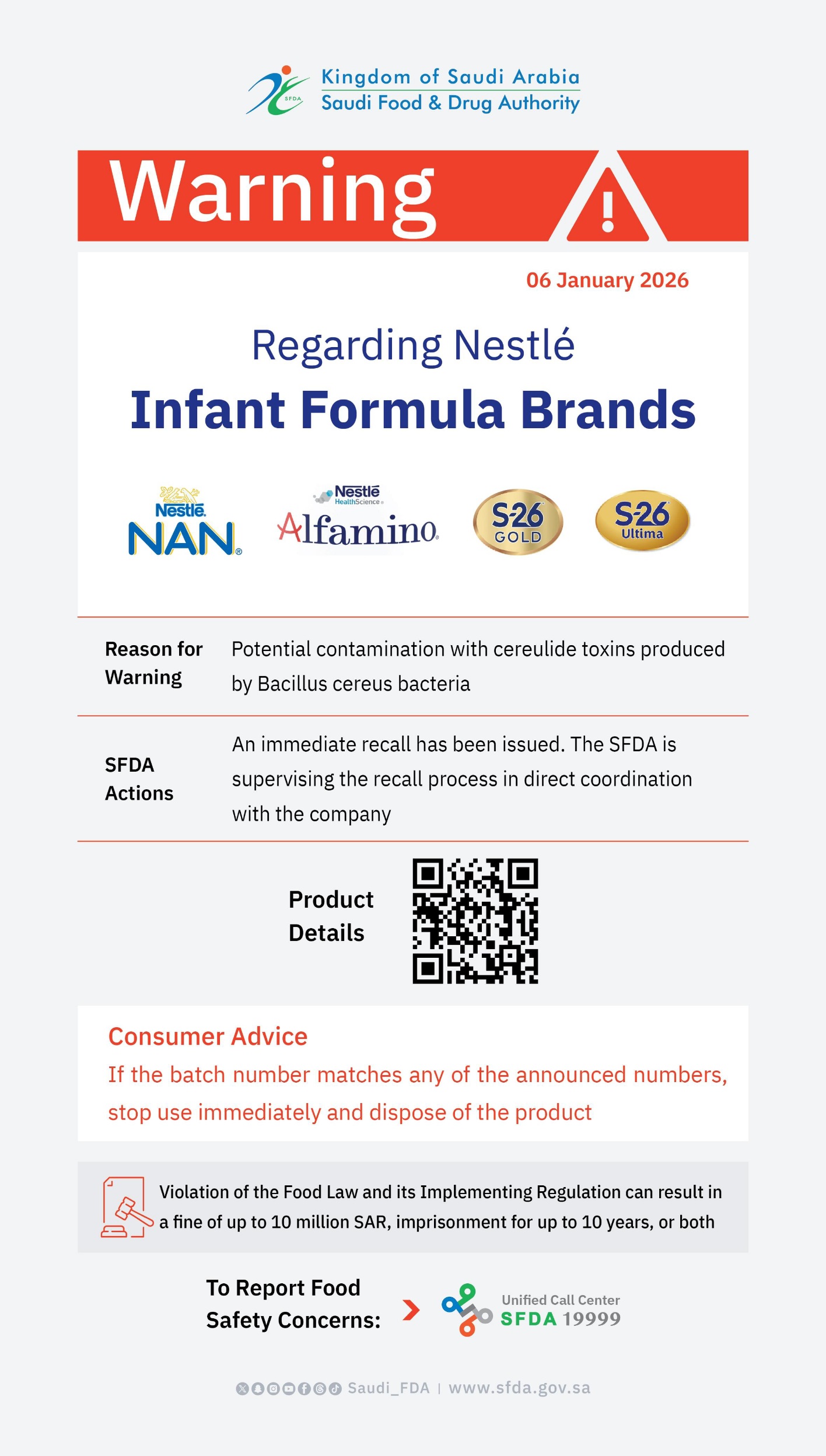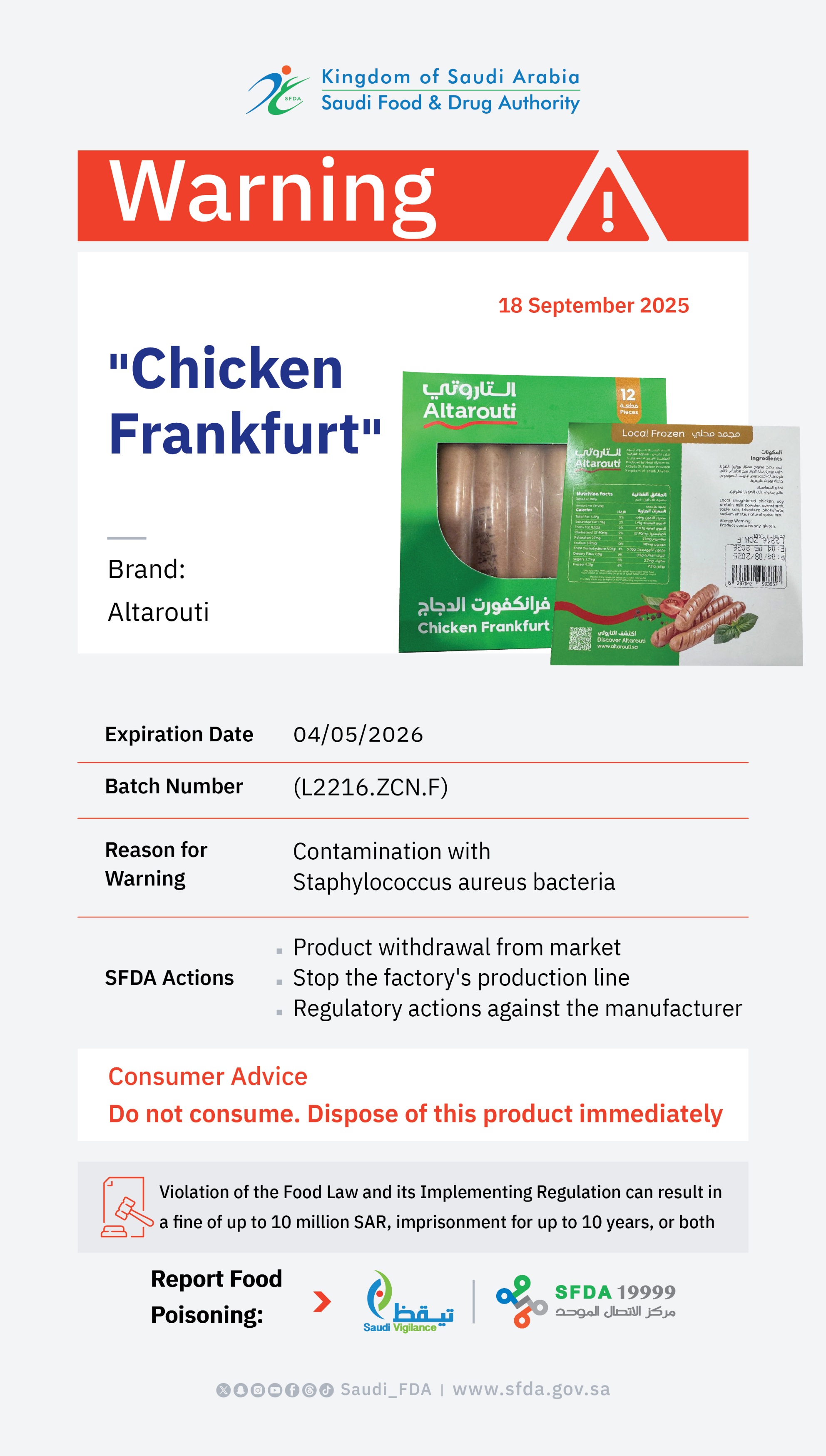
CellCept and Myfortic Are Associated with the Development of Progressive Multifocal Leukoencephalopathy (PML)
2008-07-07
The U.S. food and drug administration (FDA), the equivalents of the Saudi food and drud authority (SFDA) announced that Novartis and Roche have issued a dear healthcare professional letters to inform them that use of Myfortic (mycophenolic acid) and CellCept (mycophenolate mofetil) , medicines used to prevent organ rejection are associated with the development of Progressive Multifocal Leukoencephalopathy (PML) .
PML is a rare disorder that affects the central nervous system. When it occurs, it is usually in patients with immune systems suppressed by disease or medicines. It happens when the polyomavirus, also known as the JC virus, is activated. The JC virus is found in most adults but does not usually cause symptoms. Scientists do not know exactly how the JC virus is activated. Once activated, the JC virus attacks the cells that make myelin, the protective coating around nerve cells. Signs and symptoms of PML can include localized neurologic signs and symptoms including vision changes, loss of coordination, clumsiness, memory loss, difficulty speaking or understanding what others say, and weakness in the legs.
CellCept is approved to prevent heart, liver, and kidney transplant rejection and Myfortic is approved to prevent kidney transplant rejection. Mycophenolate mofetil, the drug ingredient in CellCept, is metabolized by the body to mycophenolic acid, the drug ingredient in Myfortic. Both CellCept and Myfortic are used with other drugs to suppress the immune system.
Action that healthcare professionals should follow:
In immunosuppressed patients, physicians should consider PML in the differential diagnosis in patients reporting neurological symptoms and consultation of a neurologist should be considered as clinically indicated.
Consideration should be given to reducing the amount of immunosuppression in patients who develop PML.
In transplant patients, physicians should also consider the risk that reduced immunosuppression represent to the graft.
Report Adverse Dug Reaction to the SFDA:
The public and health care professionals are strongly encouraged to report adverse drug reaction to the National Pharmacovigilance Center (NPC) by filling the appropriate form on the following link:





